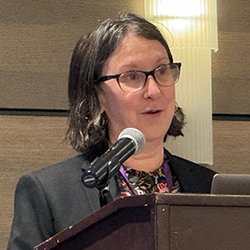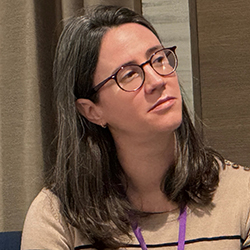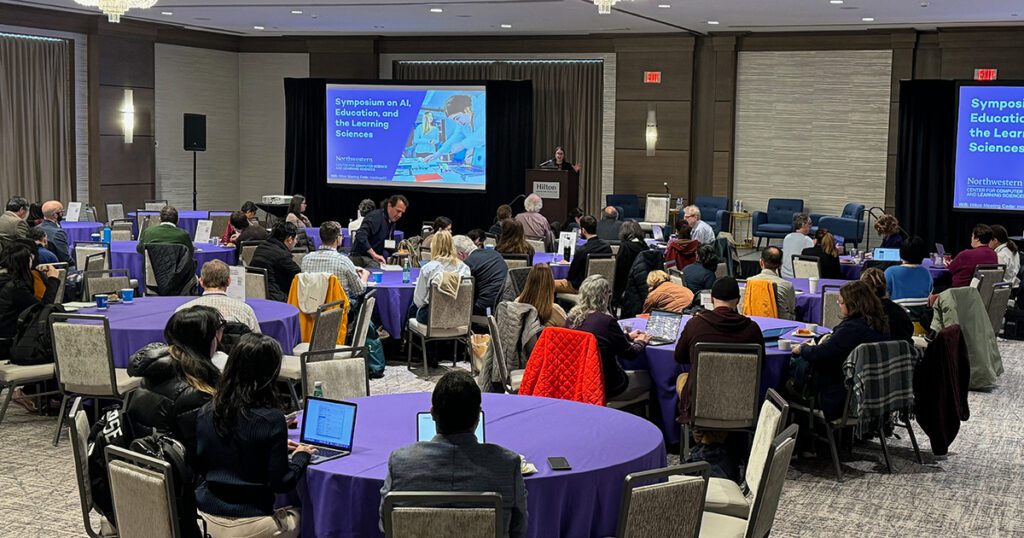Technological advancements reshape the tools and methods used by teachers and learners, changing how individuals acquire new knowledge, skills, and behaviors.
The potential of AI and foundation models to revolutionize learning environments and accelerate education metrics like quantification, personalization, and optimization is tempered by increasing concerns about the negative impacts on learners and learning communities.
On May 8, the Northwestern Center for Computer Science and Learning Sciences convened 160 educators, researchers, and industry professionals to explore the current and future role of AI in education through the interdisciplinary lens of the learning sciences.
 “Advances in AI, particularly in the past three years, resulted in the rapid development of educational applications and activities which are intended to advance student learning in ways that weren’t possible before,” Miriam Gamoran Sherin, Northwestern University’s associate provost for undergraduate education, said during the event’s opening remarks. “But such advancements didn’t always take into account how students learn or what students should learn and how AI could support that effort.”
“Advances in AI, particularly in the past three years, resulted in the rapid development of educational applications and activities which are intended to advance student learning in ways that weren’t possible before,” Miriam Gamoran Sherin, Northwestern University’s associate provost for undergraduate education, said during the event’s opening remarks. “But such advancements didn’t always take into account how students learn or what students should learn and how AI could support that effort.”
Learning sciences focuses on the ‘how.’ Drawing on disciplines including cognitive science, computer science, linguistics, and psychology, the field investigates the nuances, complexities, and qualitative elements of learning and the design of learning environments within sociocultural, political, and economic contexts.
 “Most of the conversations we are seeing around AI and education right now are focused around quantifying, personalizing, and optimizing learning for efficiency,” said Eleanor O’Rourke, associate professor of computer science at Northwestern Engineering and associate professor of learning sciences at Northwestern’s School of Education and Social Policy. “We wanted to highlight a different perspective grounded in the idea that learning is fundamentally social, difficult to measure, and situated in complex sociocultural contexts.”
“Most of the conversations we are seeing around AI and education right now are focused around quantifying, personalizing, and optimizing learning for efficiency,” said Eleanor O’Rourke, associate professor of computer science at Northwestern Engineering and associate professor of learning sciences at Northwestern’s School of Education and Social Policy. “We wanted to highlight a different perspective grounded in the idea that learning is fundamentally social, difficult to measure, and situated in complex sociocultural contexts.”
O’Rourke served as chair of the conference organizing committee. Additional members included Michael Horn, professor of computer science and learning sciences; Chris Riesbeck, associate professor of computer science; Bruce Sherin, professor of learning sciences, and Uri Wilensky, Lorraine H. Morton Professor of Learning Sciences and Computer Science.
The event was co-sponsored by Northwestern’s Office of the Provost, the McCormick School of Engineering, the School of Education and Social Policy, the Office for Research, and the Cognitive Science Program at the Weinberg College of Arts and Sciences.
Below are key takeaways from some of the conference’s sessions.

